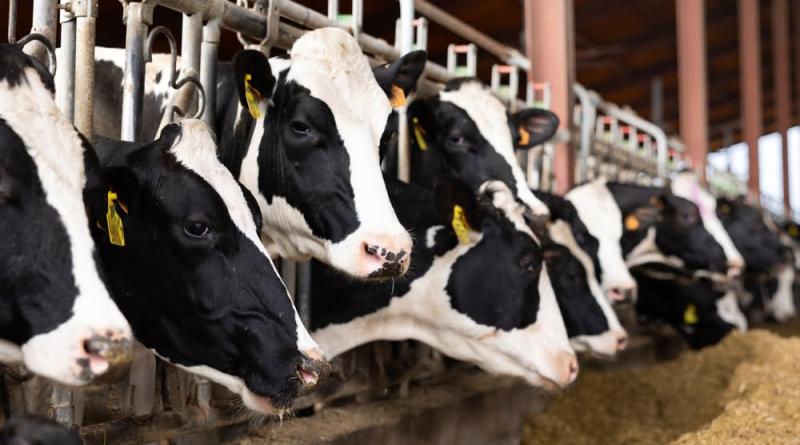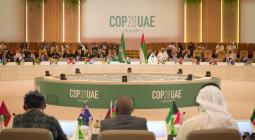COP28: Dairy giants join forces to combat methane emissions

Six of the world’s leading dairy companies have joined forces to establish the Dairy Methane Action Alliance (DMAA) in order to reduce methane emissions from dairy production.
The alliance, unveiled at the COP28 conference in Dubai, consists of Danone, Bel Group, General Mills, Lactalis USA, Kraft Heinz, and Nestlé. The companies have pledged to disclose annual emissions publicly from their dairy supply chains and “develop and implement a comprehensive methane action plan,” according to a statement from the global non-profit, Environmental Defense Fund (EDF).
Methane is recognised as one of the most potent greenhouse gases, roughly 80 times more effective at trapping heat than carbon dioxide over a 20-year period. According to the EDF, agriculture accounts for nearly 40% of human-caused methane emissions, with livestock production being the primary source.
A 2021 assessment by the Climate & Clean Air Coalition and the United Nations Environment Programme found that reducing human-caused methane emissions by 45% this decade could keep global warming below 2° C.
Meryl Richards, programme director for food and forests at Ceres said in the joint statement from all the DMAA participants: “Given the agricultural sector’s huge contribution to the climate crisis, we are pleased to partner with the Dairy Methane Action Alliance and encourage companies to take needed action on reducing a major source of their emissions by adopting and advancing practices toward a more sustainable food system and low carbon economy.”
David Shaw, the international director of ESG at Kraft Heinz, added: “Some of our most beloved brands are cheese brands, emphasising that responsibility, as we aim for net zero emissions by 2050.
“We anticipate the progress that we’ll be able to make alongside Environmental Defense Fund and other leading companies to mitigate the climate impacts while preserving the legacy of our brands for generations to come.”
Earlier this week, a coalition of 50 oil companies, representing nearly half of global production, also sought to tackle the challenge of methane. The companies pledged to achieve near-zero methane emissions and eliminate routine flaring from their operations by 2030.
In a parallel effort, the World Bank has launched an 18-month “blueprint for methane reduction” that outlines 15 national programs aimed at slashing methane emissions from various sources, including rice cultivation, livestock management, and waste disposal.





